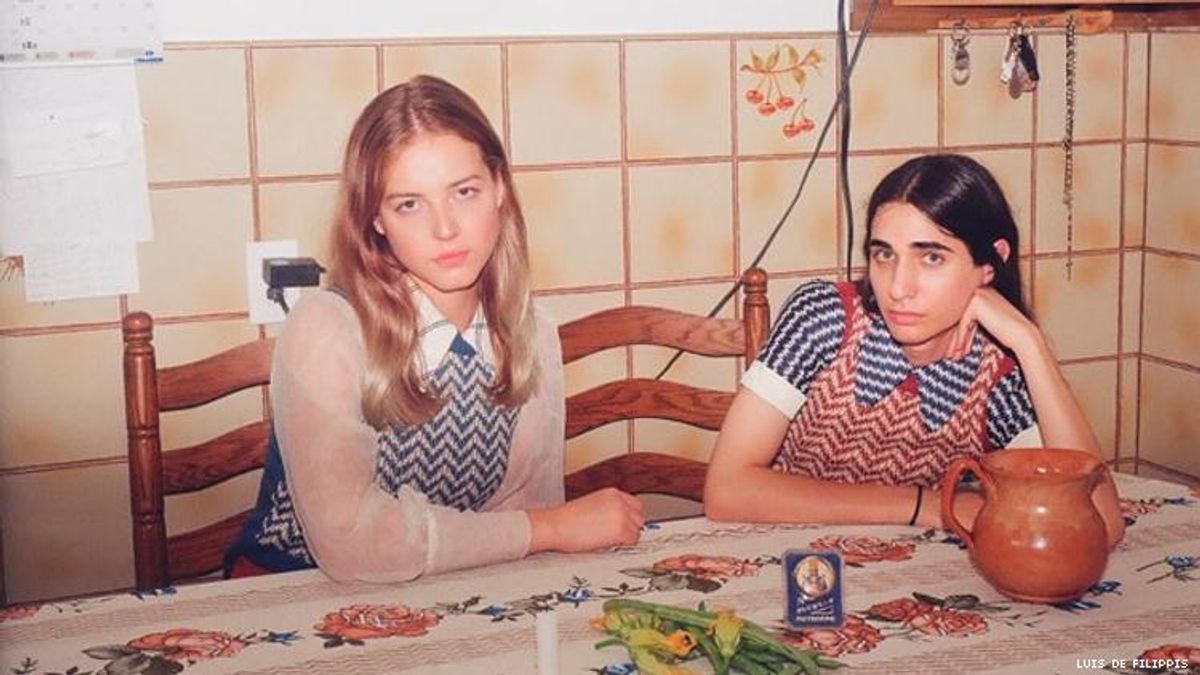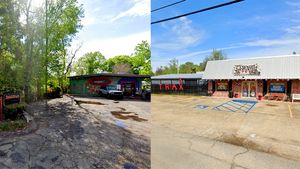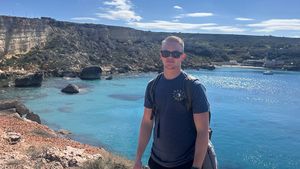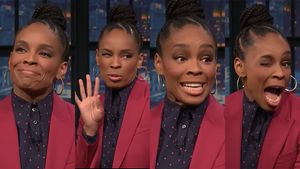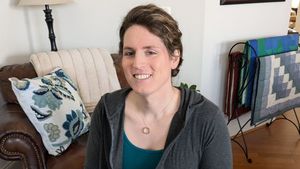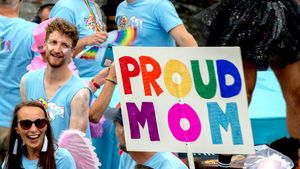Luis De Filippis is sometimes nervous about releasing her work to the public. But the filmmaker knows that's just part of the process of creating.
"Anytime you put your art out there, you have this moment of doubt," she told Out, on the eve of her short film, For Nonna Anna, premiering on Vimeo and Short of The Week. "This feeling is compounded by the fact that this story is so incredibly personal."
For Nonna Annais a 13-minute testimony of intergenerational and intersectional womanhood as a trans girl cares for her Italian grandmother. Though she assumes that her nonna disapproves of her, she instead discovers a tender bond in their shared vulnerability.
"Growing up, I spent a lot of time with these [my grandmother and great-grandmother] and they never made me feel less than in my early exploration of gender," De Filippis said. "The film is really a testament to these women who loved me not in spite of their religion but because of it. 'Jesus loves everyone,' is what my nonna told me when I first told her I was transitioning."
Ahead of the online release, Out spoke with De Filippis about the short, and her wishes as a trans filmmaker.
Describe for us what For Nonna Anna is about. What made you want to have this subject as the basis for the short film?
At its core,For Nonna Anna is a film about two women who recognize their shared experiences in one another. Chris, a young trans woman, is at a moment in her life where she is starting to see herself and feel confident in who she is, while her Italian grandmother is losing her independence, and sense of self through the aging process. I really wanted to tell a story about the relationship between a granddaughter and her grandmother, something that depicted a supportive family and took place after the discussion of transition had happened.
Like Chris, it was at my nonna's house, amongst the religious icons and faded family photos, that I began my early exploration of gender. This woman never dissuaded me from modelling her clothes or clomping around the house in her heels. My nonna gave me space to experiment and play, free from the guilt and shame that much of the world beyond her floral-papered walls threw my way. I owe so much to her. This is my way of saying, "Thank you." This is my way of saying "Ti voglio tanto bene."
What was your reaction when you were first notified that it'd been selected for recognition from Vimeo and Short of the Week?
Glee, followed by heart wrenching tread... I still can't believe that I was in Sundance with it. As an artist you try not to let these things affect the worth you place on your projects, but let's not lie, it is validating to have these platforms backing my work.
As a filmmaker, what types of stories are you looking to tell? What do you find missing in the depiction Hollywood has given us thus far?
As filmmaker I look to fill the gaps in storytelling. For too long, trans characters and their stories have been filtered through the cis male gaze where our bodies have been eroticized, our experiences sensationalized, and our people vilified. I want to tell stories about trans people being people, where our transitions are not the main thrust of the plot or don't hinge on our lives being "learning experiences." I want to tell stories where trans characters can just live and be and not have to explain themselves constantly. Ultimately, I want to tell the stories that I did not see growing up.
In terms of what Hollywood has given us thus far, I think it's not so much a question of "what" is missing, but rather, "who." I know so many talented and fabulous trans creators, each with a nuanced and beautiful story to tell, but the system is so scared to break its tired mold. And when we do get opportunities, it's almost hesitant. I want to see more trans people, more women-identified people, more POC, more queer people tell their stories with the same amount of resources that have been bestowed upon the cis white men who have told our stories for the last 100 years -- and that's only counting cinema. We're here, and we got things to say that haven't been said before, so maybe toss us some of that Marvel money.
Are you hopeful, as a trans filmmaker, of where representation conversations are going in the industry?
I am hopeful, especially when I see the amount of trans and queer filmmakers that are striving towards getting their work made. Accurate representation means having multiple trans voices telling multiple trans stories, for no one person or story can represent the trans experience. All one can do is represent a trans experience. We're in a really exciting time when there are so many different perspectives of what being trans is, and how we want to depict ourselves. I think true representation means having stories that are as varied, and beautiful, and bold, as we are. All of our voices are valid, as are the stories we tell.
Check out For Nonna Anna below:
RELATED | All The LGBTQ+ Filmmakers At Toronto's Inside Out Film Festival
